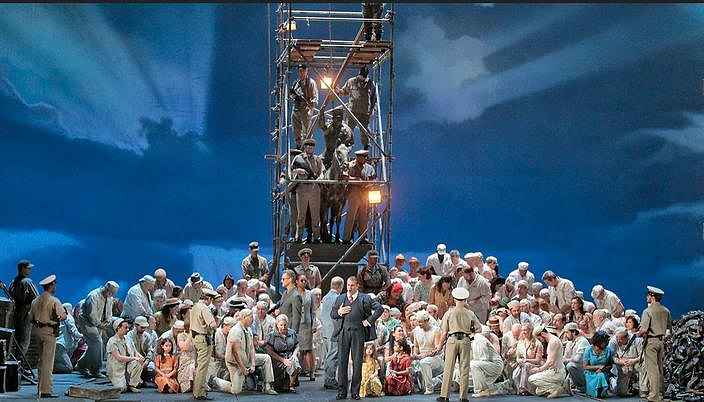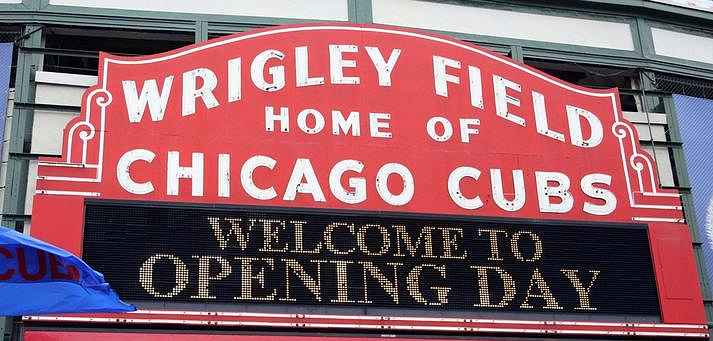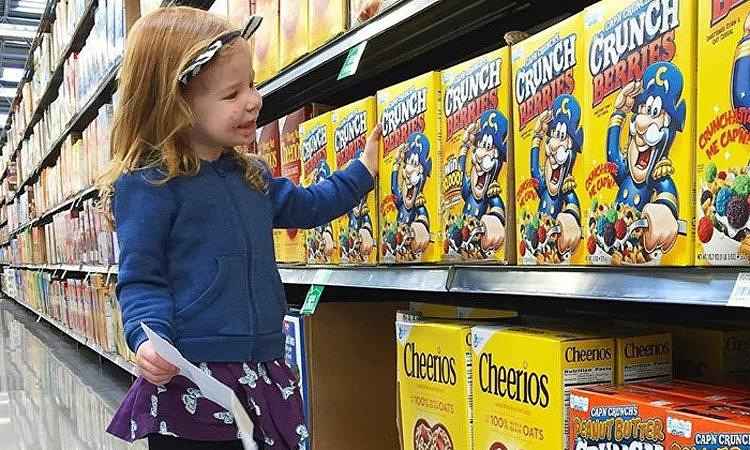





See listing of Recent and Most Popular articles on the Home Page
Connections
Category: Relationships / Topics: Choices and Decision Making • Family • Financial • Food & Nuitrition • Opportunity • Parenting, Parents • Relationships • Teaching
Grocery Shopping with Children
by Ken Potts
Posted: January 5, 2020
Learning opportunities abound…
Edtitor's note: While directed at parents shopping with their children, the same lessons apply when grandparents go shopping with grandchildren. In fact, grandparents may have unique opportunities for finding teachable moments.
Ever notice how children grow an extra set of arms when you take them to the grocery store?
We seem to spend most of our time taking things away from them that we don't want -- or rushing to prop up a tall stack of cans or boxes our youngster has just upset.
Then, of course, there is that strange disease called "I-wanna" (sometimes also referred to as the "gimmes"). "I wanna candy bar." "Gimme that.'" Or "buy me one."
Most parents don't do well in such situations. Usually rushed, juggling a list in our heads, and trying to count pennies, the last thing we need is a rambunctious child to contend with.
Not too surprisingly, you can see more examples of out-of-control parents in grocery stores than almost any place else.
Believing that family psychology has to be practical, I've done some thinking about this. Let me offer some ideas, then, on how to get control of your grocery store expedition.
First, set reasonable expectations for yourself and your children.
For example, if you've only got an hour to do a month's shopping, it might make sense to just leave the kids with a sitter. There just isn't going to be enough time to be a good shopper and a good parent at the same time.
Assuming, though, that it makes sense to take your children with you, set realistic expectations.
Don't expect a 2-year-old to sit calmly in a grocery cart for 90 minutes. Don't expect absolute silence from a 5-year-old.
Do, however, expect that your child will behave appropriately: walking (not running), talking (not yelling), asking before they take anything off the shelf, etc.
As much as possible, share these expectations with your children. And be prepared to repeat them at the store, and enforce them if need be.
Also recognize that grocery stores are organized to be tempting. Likewise, our whole mass media is aimed at convincing us to buy, and our children have gotten the message.
I suggest you tell your children beforehand that they'll each be able to pick one "treat" when you shop. Of course, this treat will need to fit your budget and nutrition guidelines.
When you take your children shopping, pack a bag of age-appropriate diversions: coloring books, story books, a game -- anything that can occupy your child's attention when things get boring.
Oh, while we're at it, a word about temper tantrums and other misbehavior.
Kids will always test their limits, especially in public. And most parents are self-conscious enough that we will do just about anything to calm a disruptive child when we are at a store, or church, or movie.
Unfortunately, kids easily learn they can get away with murder if they just embarrass Mom or Dad sufficiently.
Be prepared, then, to stick to your guns. If your 3-year-old winds up sitting in the middle of the aisle screaming, either: 1) walk away and let them scream, or 2) carry your child to the car and sit there until they calm down. Always explain that such behavior will not be tolerated, and listen to what they are trying to say. Be reasonable but firm.
Having done all that, you might consider being a bit more ambitious.
Consider the grocery store as a potential educational experience. Depending on the age of your children, all sorts of things can be learned on a shopping trip.
For example, toddlers can explore shapes and sizes. Preschoolers can learn letters and numbers. Grade-schoolers can practice reading, spelling, addition, or even memorizing parts of your grocery list.
Older children can learn valuable lessons about being a consumer -- planning, budgeting, pricing, comparison shopping, or nutrition. You might even let your teens plan, shop for and prepare meals on a regular basis.
There's a lot of potential in that humdrum grocery shopping expedition. At the very least, children can learn that there are standards for acceptable behavior that will be enforced.
Beyond that, we can use our time together to teach our children a variety of life skills they need to master as they grow toward adulthood.
Search all articles by Ken Potts
Dr. Ken Potts is on the staff of SamaraCare Counseling Center in Naperville and Downers Grove, Illinois. • E-mail the author (gro.gnilesnuoceracaramas@sttopk*) • Author's website (personal or primary**)* For web-based email, you may need to copy and paste the address yourself.
** opens in a new tab or window. Close it to return here.
Posted: January 5, 2020 Accessed 374 times
![]() Go to the list of most recent Connections Articles
Go to the list of most recent Connections Articles
![]() Search Connections (You can expand the search to the entire site)
Search Connections (You can expand the search to the entire site)
![]() Go to the list of Most Recent and Most Popular Articles across the site (Home Page)
Go to the list of Most Recent and Most Popular Articles across the site (Home Page)
 Loading requested view...
Loading requested view...
